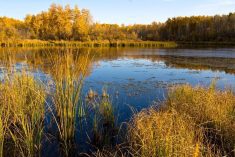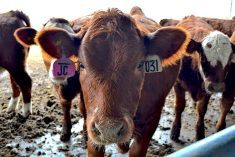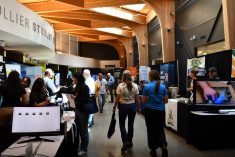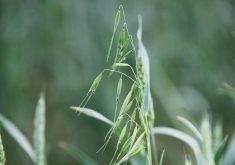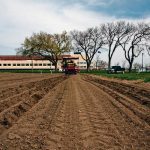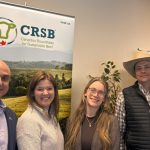Aman who dedicated his life to his passion for insects and his belief in mentorship and collaboration will be remembered by Canada’s entomology and growing communities for his achievements, dedication and intellect.
Lloyd Dosdall, 61, an entomologist and professor in the department of agriculture, life and environmental sciences at the University of Alberta, passed away from cancer on June 12.
Dosdall’s contributions have left a lasting legacy to crop production. Most entomologists in Western Canada had dealings with him and many of them had worked with him, and he was prominent in national and international circles, said Maya Evenden, associate professor in the department of biological sciences at the University of Alberta.
Read Also

Rural Alberta gets further boost to internet connectivity
The province and feds join forces to help remote/rural Albertans get connected to reliable high-speed internet through its Broadband Strategy.
“In 2012, we had the national entomological society meeting here in Edmonton — this happened just after Lloyd was diagnosed, said Evenden. “He had arranged a symposium to talk about crop entomology. At the symposium meeting, every single person who spoke had collaborated with Lloyd.
“They were very diverse projects on all sorts of crops and angles of looking at entomology. He had worked with everybody. He was a real collaborator who lent his expertise to lots of people.”
Dosdall won several prestigious awards, including the 2010 Alberta Science and Technology Leadership Award for innovation in agricultural science, and the 2013 FarmTech award for outstanding contribution to Alberta’s cropping industry. Following his death, his colleagues dedicated the new Field Guide of Prairie Insects and Natural Enemies to him, honouring him with a tribute in the preface.
Dosdall specialized in integrated pest management with an emphasis on the use of beneficial insects for pest control. Key insects that he researched included the cabbage seed pod weevil and the cabbage root maggot.
He was an expert on the interaction between pests, the environment and crops, said Jim Broatch, pest management specialist with Agriculture and Agri-Food Canada, Lacombe.
“Not all of his work was biological, but I think his heart really lay more in the biological control end of things,” said Evenden. “He was really involved, not in a superficial way, but in a way that took time, energy and thought. He wouldn’t step into something without thinking it through and then being fully committed.”
Evenden first met the man who would become a close colleague, mentor and collaborator when he was part of the panel who interviewed her for her current position at the University of Alberta.
“I didn’t know much about farming in Alberta when I came here but my work is quite applied,” said Evenden, who joined the faculty in 2003 and often collaborated on research with Dosdall.
“He really helped me to get to know the grower groups and get to know the funding available. He was just really helpful in facilitating research in many different directions.”
“I think I was his first PhD student,” said Broatch, who first met Dosdall when he was an agriculture fieldman in the Peace Country and Dosdall was with the Alberta Research Council in Vegreville. Eventually Broatch moved to Alberta Agriculture, and the two men developed a professional relationship. Dosdall became Broatch’s PhD supervisor at the University of Alberta in the early 2000s.
“Lloyd was always supportive. When you had a question, he always answered it and it was never a quick answer — he made sure you understood it,” said Broatch. “I don’t know if I’ve ever bumped into that type of support before.
“You always learned more than you ever thought you would from asking a question. It always seemed to go further, and you had a deeper knowledge of what you were looking at. He wasn’t just a mentor, he was a friend. When he talked to you, you always felt like you were a friend of his.”
Dosdall was a high school teacher for six years, and his gift for teaching remained with him throughout his life, said Broatch.
He was a man who believed in sharing his expertise and made time for everyone, whether they were fellow entomologists, students, or growers, said Evenden.
“He felt that the knowledge he had should be disseminated to end-users. That included a scientific community and a farming community.”
Evenden spoke to Dosdall a few weeks before he passed away.
“By that time, he had been told that there was nothing more that they could do for him, and it was a matter of time. He was still just so incredibly positive. He was telling me at that time what types of equipment from his lab that he would like me to have. He was just that kind of thoughtful individual.”
Dosdall is survived by his wife of 39 years, Teresa Kay Height-Dosdall, three sisters, and numerous extended family members.






